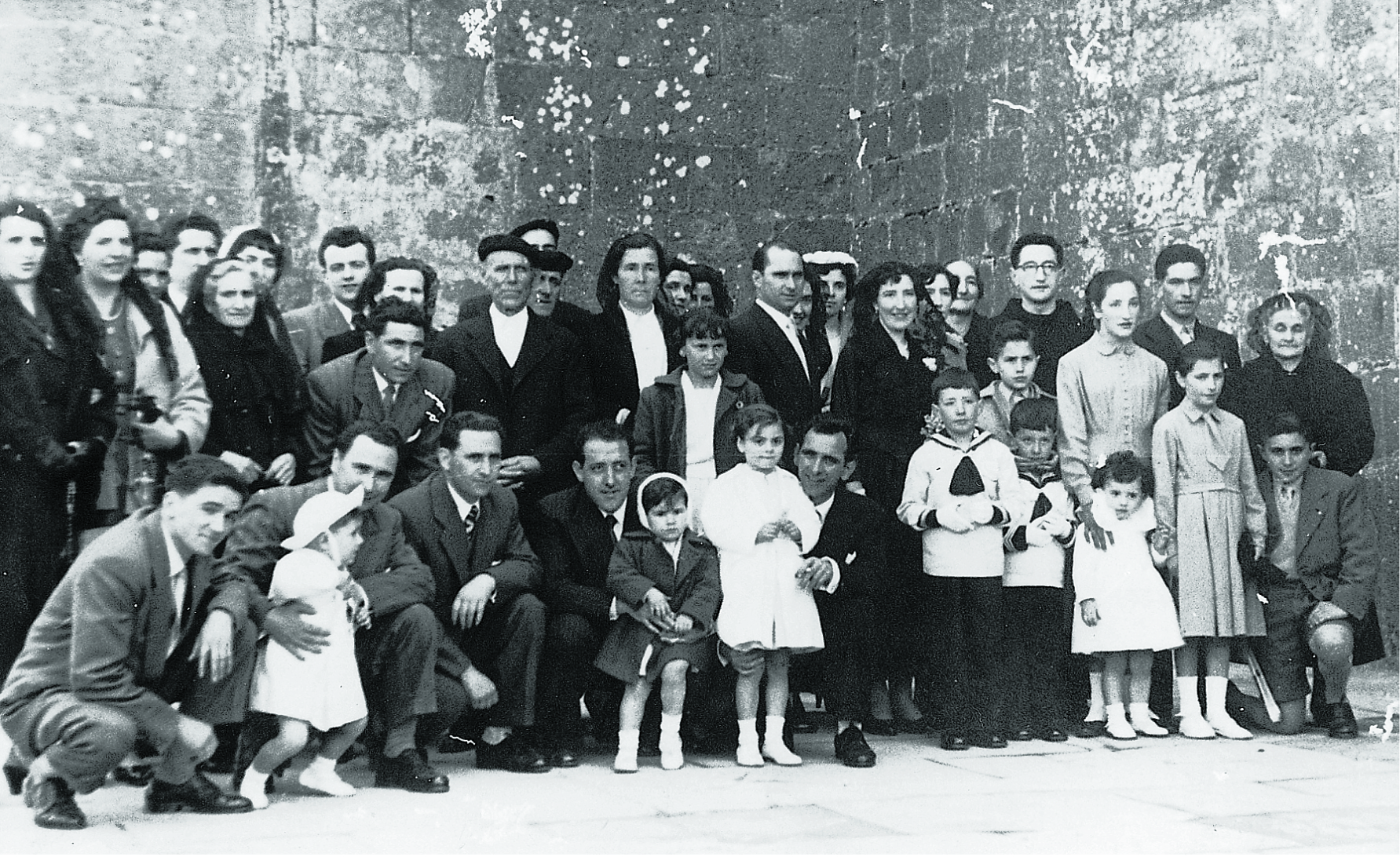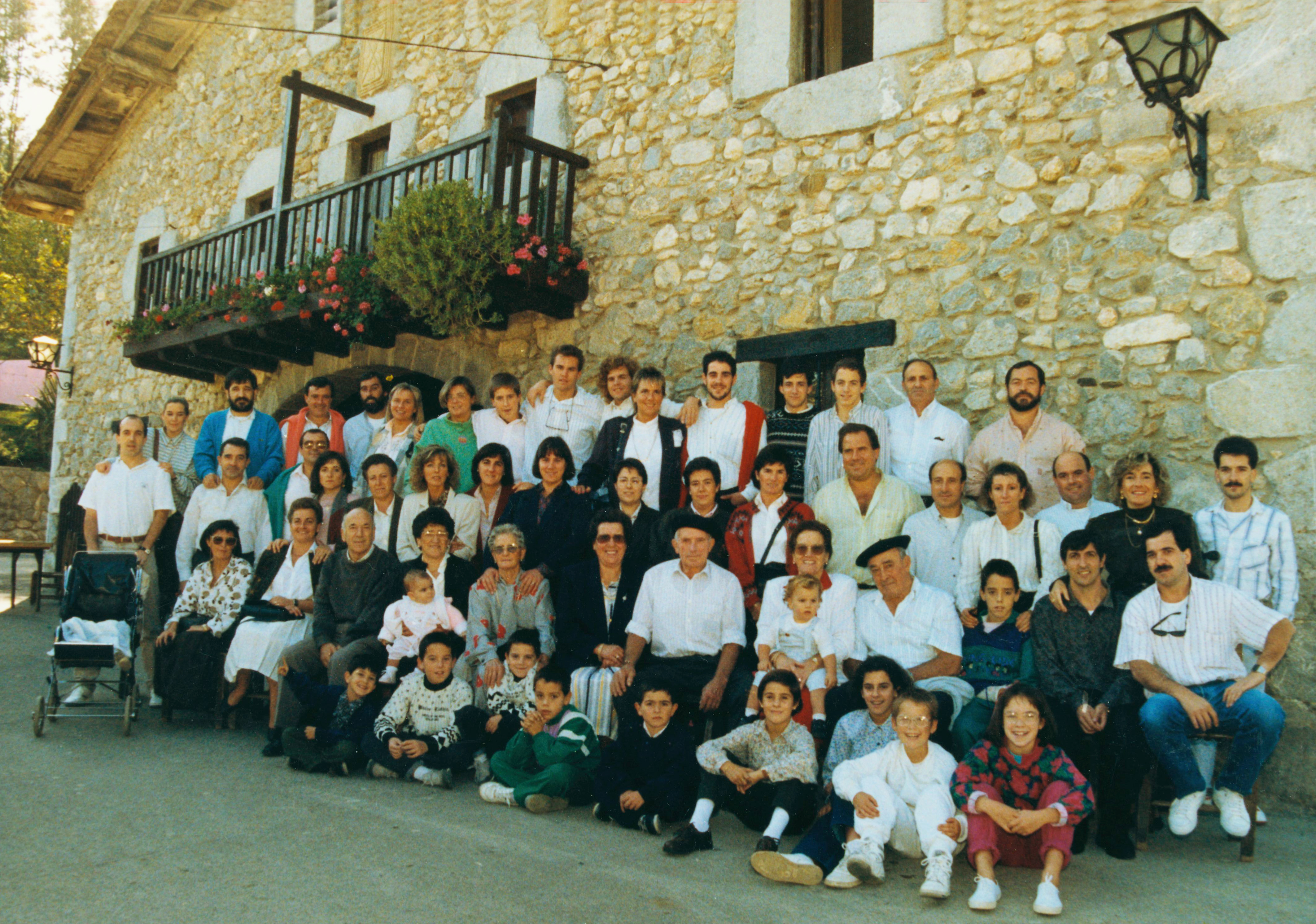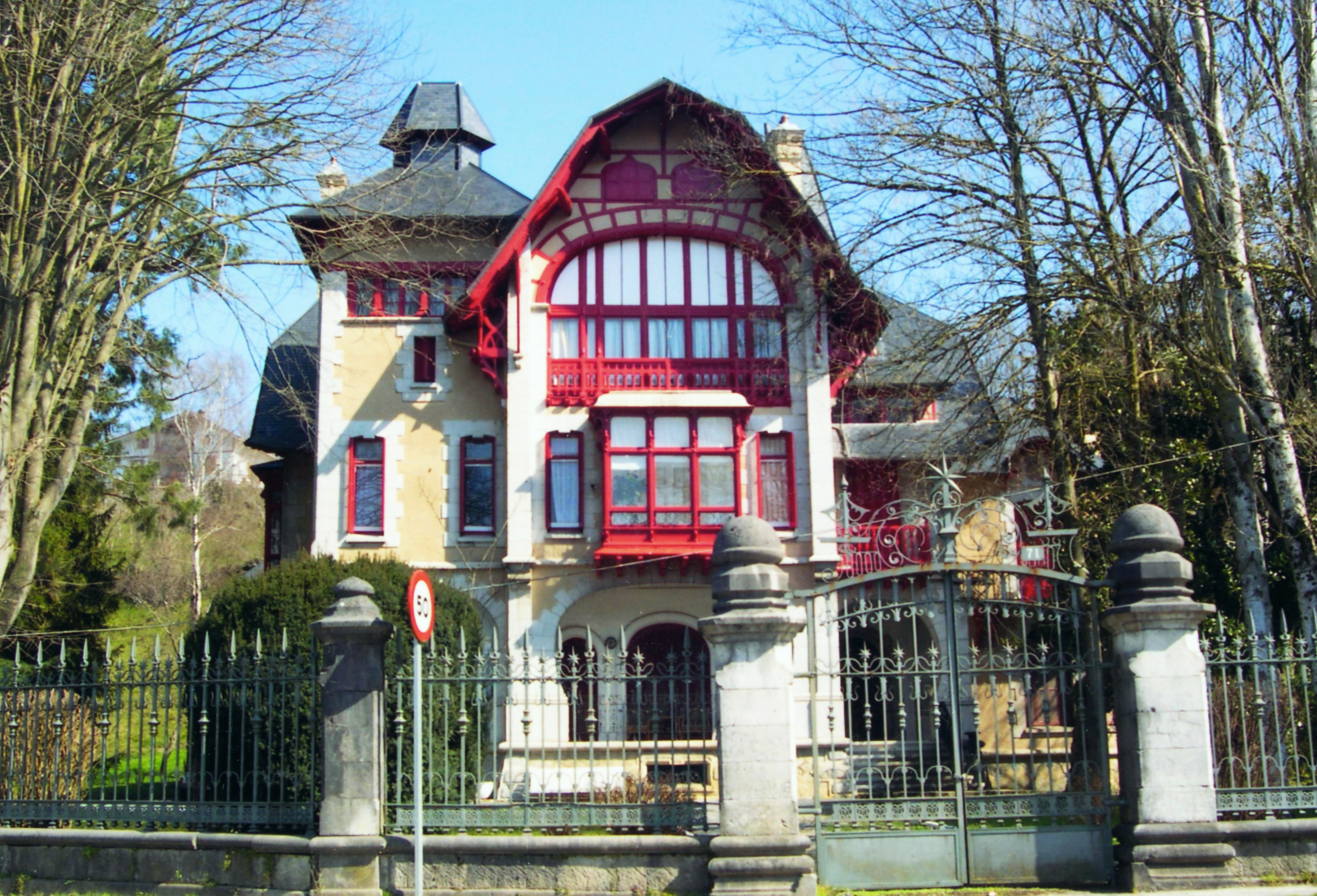Basque ethnography at a glance

Wedding, first mass and first communion of four siblings. Nabarniz (Bizkaia), 1952. Segundo Oar-Arteta. Labayru Fundazioa Photographic Archive.
Protection of the family’s good name and respect for the memory of forebears are traditionally instilled values. Blood relations stand by each other in the face of third parties, accusations and reprimands being reserved to the private sphere but never aired. Offences given to an individual would affect the family and concern all consanguineous relatives.
Certain personal attitudes, some claim, relish the effects of family determinism. Thus, while a number of people are held in high esteem by virtue of their honourable family background, improper behaviour on the part of others is no surprise, for as the saying goes, ‘like parent, like child’.
The following have been of great importance within the family (and out of it): faithfulness to the pledged word, implementation of undertaken commitments, steering clear of issues that are looked down upon by society… By the same token, inappropriate conduct would be censured as alien to the family and its members defended if falsely accused or slandered and defamed.
There exists a feeling of solidarity among relatives to help each other with agricultural chores, urgent work, and most especially in the event of misfortune or disease. Links of kinship are all the more intense between members of the same household who share roof and table. Many a time such collaboration extends from one’s own flesh and blood to the neighbourhood.
The situation of orphan children merits special attention, for someone ought to take care of them, and should the case deem it, administer their assets. These tasks are usually entrusted to the immediate family of the deceased, be it grandparents or siblings.
When it comes to moneylending or financial assistance of natural kin in need, and to avoid interference, the fairly narrow circle of kinfolk is merely reduced to nearest and dearest siblings.
Before more than now, the bond between emigrated relatives and their own flesh and blood back home was of an interesting nature. There were two possible scenarios: they would either continue supporting the parental household or soon cut former ties. It is fair to say, though, the provision of aid, or lack of it, was to an extent conditioned by the success or failure of the adventurous emigrant.
Segundo Oar-Arteta – Etniker Bizkaia – Etniker Euskalerria Groups
Translated by Jaione Bilbao – Language Department – Labayru Fundazioa
Reference for further information: House and Family, part of the Ethnographic Atlas of the Basque Country collection.



